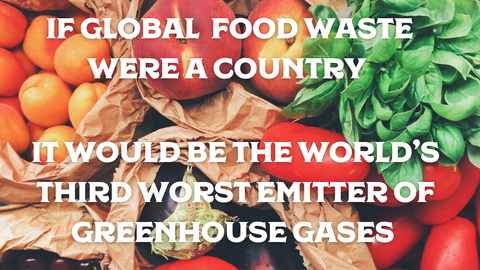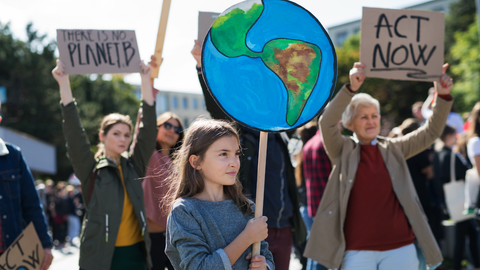
By Farah Stack
"Significant progress is needed to end the increase of greenhouse gas emissions, global financing of fossil fuel projects, accelerate the deployment of renewable energy projects, stopping new oil and gas developments, and funding projects that enable the most impacted countries to respond and adapt to the climate crisis."
This past week, leaders from around the world came together for the 26th annual summit for the United Nations 26th climate change, ‘Conference of the Parties,’ also more commonly known as “COP 26,” in Glasgow, Scotland.
For nearly three decades, the United Nations has been bringing the international community together from almost every country on Earth for global climate change summits, and this year’s COP 26 might be, “our world’s best last chance” to address the climate crisis before we reach a tipping point of the most catastrophic impacts of climate change, in 2030.
For twelve days from October 31st to November 12, 2021, world leaders, thousands of negotiators, government representatives, businesses, non-governmental organizations, and citizens will be negotiating and addressing global efforts to tackle and prevent the dire climate crisis.
After the infamous Paris Climate Agreement in 2015 that took place at COP 21, international leaders agreed to collaborate together to limit global warming to well below 2º Celsius and aim for 1.5º C. Each country submitted their own national climate plans aimed at decreasing global climate emissions and limiting global temperatures from rising to 1.5ºC.
The actions promised and necessary to achieve this is vitally important because every fraction of a degree of warming will result in the loss of many more lives lost, livelihoods damaged, and the destabilization of our planet’s climate systems which all life depends upon.
However, recent analysis of global commitments since 2015 show that world leaders are falling short of the goal to limit global temperature rise to 1.5ºC. Significant progress is needed to end the increase of greenhouse gas emissions, global financing of fossil fuel projects, accelerate the deployment of renewable energy projects, stopping new oil and gas developments, and funding projects that enable the most impacted countries to respond and adapt to the climate crisis.
But what does food waste have to do with all of this?
The global food system will play an important role in mitigating climate change, as its environmental impact currently amounts for one-third of total greenhouse gas emissions. A large portion of greenhouse gases emitted into the atmosphere comes from food waste, in fact, the global volume of food wastage is estimated at 1.6 billion tonnes. This is equivalent to about one-third of all the food produced in the world, and it’s all being wasted. If global food waste were measured as a country, it would be the world’s third worst emitter of greenhouse gases.
But how does food waste contribute to greenhouse gas emissions?
The fruits, vegetables, meat, dairy, seafood, and grains that either spoil during distribution, or are thrown away from our leftover breakfast, lunch, dinner, grocery stores, schools, or home kitchens are all unsustainably disposed of, usually in landfills. When all of this food rots in landfills, it is unable to naturally decompose and creates a toxic gas called methane.
Methane is a potent greenhouse gas that can trap 86 times more heat in the atmosphere than carbon dioxide, thus contributing directly to global warming. This is a huge problem considering it also has more than 80 times the warming power of carbon dioxide over the first 20 years after it reaches the atmosphere. Even though carbon dioxide has a longer-lasting effect, methane sets the pace for warming in the near future.

Additionally, when we waste food, we also waste all of the energy, water, fertilizer, and resources it takes to grow, harvest, transport, and package the food.The amount of food wasted is also enough to feed every single person on the planet and has the potential to significantly help reduce food insecurity today. About 6-8% of human caused greenhouse gas emissions could be reduced if we stopped wasting food--that’s a lot!
So, if I reduce my food waste footprint, will my individual action really make a difference?
Yes, your individual action will make a difference! The choices we make on a daily basis express our priorities and concerns about climate change to others. Each and every one of us truly has the power to encourage others to make a difference within our day to day lives. Our individual choices might be an extremely small percentage of the climate issues happening on a global scale, but there is power in individual action influencing collective action.
We are in a decisive decade with a looming climate tipping point on the horizon in 2030, but through a collective and collaborative effort, we can efficiently address the climate crisis and ensure a sustainable and just future for all!







